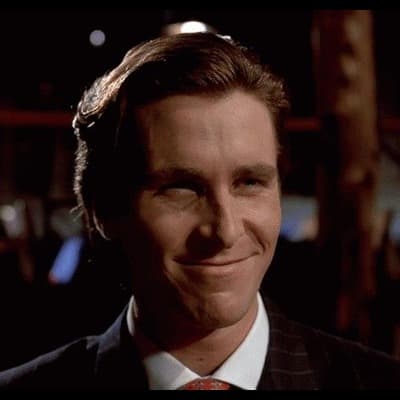
Do people here not realise their current/future employers might be on GV too?
Really surprised to see the level of name-calling, personal attacks and poor use of language happening on a public forum for professionals.
I don't know how we came to this point as a country where you can't even have a civil discussion about topics without someone starting to abuse people for no good reason. It's the same thing playing out on other social media platforms as well.
Most of this vitriol seems to be coming from a particular section of people, and it's obvious to everyone. What I don't get is why they indulge in such behaviour when they could be speaking to their potential partners, employers, colleagues and maybe even future co-founders.
Do they not realise this, or do they not care? Why has mature conversation and civil discourse died such a horrible death in India? Who is responsible? Can this be fixed?
One interview, 1000+ job opportunities
Take a 10-min AI interview to qualify for numerous real jobs auto-matched to your profile 🔑
To answer your question, I feel India has NEVER had a civil discourse especially in matters political. It is not anything new. Let alone India, even the West, the supposed doyens of democracy have not had it. What you are witnessing in India is a section of young, professionally successful, strongly opinionated and very independent minded individuals who are challenging the ancien regime sociopolitical thought consensus. Similar phenomena is also being seen in the US and the West at large. So, in a way the discourse is much freer than it has ever been.
Earlier what would happen is a systematic denial of any space to anyone not subscribing to the old sociopolitical thought consensus. That left the space open to only a few who would lord over the masses and act as opinion creators and shapers for the masses. When every one in the group is just a version of yourself, there was little incentive for the sociopolitical discourse to be conflicting. But that changed with the oncoming of internet, social media and new regimes.
Simultaneously, as all of these are happening, what is also happening are those subscribers to the old sociopolitical thought regime getting increasingly nervous about them losing their erstwhile control and therefore, erecting new means to enforce their views by seeking to dismiss the thoughts of the new upstarts through disparaging them with epithets like alt-right, islamophobe, IT cell, WhatsApp university, et al. But they are not remotely as successful as before because of the democratizing effects of distribution given by the internet.
I am therefore, very optimistic, and an outlier in not considering the noisy cacophonous nature of discourses today as something necessarily bad. It is actually very good for our democracy and certainly free. It could be freer though as the James Damore Google episode or the recent firing of a fresher for sharing politically incorrect views online shows.

Adding to the above a few more lines.
The old sociopolitical thought consensus elites still seem to possess a significant majority control of opinion like the Damore incident shows. And like you aver here. Anyone who displays any politically incorrect view that doesn’t agree with the established thought consensus can pay dearly by losing their employment or worse.
What I have stated above is a more bird eye view analysis of the phenomenon. You can read Sanjaya Baru’s (an old regime elite himself & the Media Advisor & spokesperson of the Manmohan Singh led PMO) “India’s Political Elite” to understand this phenomenon from close to the corridors of power.

Interesting points, thanks for sharing. I can't really disagree with you, although I'd personally prefer if people stopped labelling and insulting each other as often as they currently do.
I'm a centrist for the most part and I get called all sorts of things from both ends of the political spectrum. It's mentally exhausting trying to prove otherwise.
For ex, just because I agree with one statement from a person doesn't necessarily mean I condone everything that they have said, but that's what is assumed by others simply based on that one statement. It's quite myopic and I feel people should be more open minded and not paint everything black and white. The world is more gray than anything imo.

Ab hum gawar log hai, aise hi crass language me baate krte toh koi elite kahi se bhi trigger hojata hai, then add to it sm algos feeding fire to the hate.
bachpan se dekha hai fat kid ko "chota haathi" etc refer kia jata hai, it was the normal, now trying to improve, after being made to believe that was wrong.

Gawar log bhi aise nai baat karte saar, even they are respectful most of the time

Then you've not dealt with fair share of gawars, from Bollywood to chotu chai it's clearly prevalent, deeply ingrained into people's lives.
For any community what's being respectful or not outsiders don't set the rules.
One might even find the term KLPD rude/ offensive whatever, doesn't mean they undermine the quantum of pain it stands to portray.
FREEDOM OF SPEECH is still Valid, no?

It's like you are asking social media platforms to censor. Bhai ye content censor nai ho sakta. Call it gossip but this is basic human nature and who's to blame for it, well my friend you can't control this beyond basic censorship. Platforms can't even deny this because ultimately it's what drives engagement. Though I agree with the civil sense part, unfortunately not sure how much of this is even controllable.

I'm not asking anyone to censor anyone, didn't even mention it anywhere.
It should be the people who self-regulate and come to realise what kind of language they should be using to address someone.

What you are asking is sane human behaviour in a world filled with turmoil. I think it exists in dreams only. Civil sense is only found in mars these days

It’s really dumb and stupid on your part to (indirectly) threaten people into watching their language as it could affect their future employment.
India has a weird affliction with the word “respect”. It only tends to come up when you don’t agree with someone’s views. And people tend to beg for it like sucking up to it would do them any good. If you don’t like it, find some other app. If you are scared, don’t do it yourself. This is similar to an American going to France and complaining they are rude and talk in French.
Civil discourse is a vague word. You can’t get everyone to agree on a definition. You need to read about how discussions and conflicts happen and how they are resolved both in online and real world.

I see your point, but there have been a few cases of doxxing already here. Not very difficult to guess who is who with just a few pieces of information. Indian startup community is pretty small.
As for conflict resolution, I've never seen it happen with both parties using strong language. But happy to read more about it if you have any references to share.

If you are really gonna post about shark tank and bumble/hinge, people can figure it out. It also doesn’t matter if you change the name later. I feel that’s where the past came from.
My point is, offline or online, language is nearly orthogonal to two parties resolving conflict. With men, either the conflict escalates or de escalates, and stronger language helps it get to either conclusion quickly. It may not be pleasant, but it is useful for quick resolution.

isn't it anonymous and if you dont like it, dont read it or dont engage.
It is like telling people not to party after 8 PM bcs your kids are sleeping.
Chillar k layak bhi nai h ye gyan toh

No one here wants to impress you or get your validation. If someone free speech is not upto your standards, create your own utopia and live in it, bhaksh do bhai

I get the context from the previous post, totally agree to your point.
Shitposting & ranting aside, people being rude personally is uncalled for. Spoils the vibe of every conversation. It is unwise to do it in a small community as this one, to their own detriment.
Nobody knows who I am

